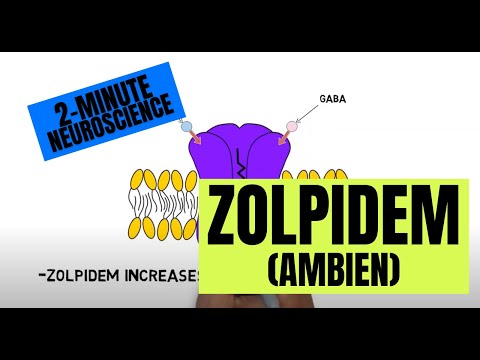- Subjects: Neurosciences
- |
- Contributor:
- Neuroscientifically Challenged
- schizophrenia
- severe psychiatric condition
This video is adapted from: https://www.youtube.com/watch?v=pjTmZqBNB78
Schizophrenia is a potentially severe psychiatric condition that involves a variety of symptoms. In this video, I discuss the neuroscience of schizophrenia. [1][2][3][4]
TRANSCRIPT:
Schizophrenia is a potentially severe psychiatric condition that involves a variety of symptoms. The symptoms of schizophrenia are often categorized as positive, negative, or cognitive. Positive symptoms involve the development of a behavior or thought pattern that isn’t normally present, such as hallucinations and/or delusions. Negative symptoms involve the loss of a normal function, and include lack of motivation, blunted emotion, or difficulty experiencing pleasure. Cognitive symptoms are those that affect someone’s ability to think clearly, and include deficits in attention, memory, and/or concentration.
The neuroscience of schizophrenia has been difficult to sort out, but a great deal of research has focused on neurotransmitter abnormalities at the root of the disorder. Dopamine has received much of this attention, with the general hypothesis being that dopamine activity is too high in certain parts of the brain in schizophrenia. This hypothesis was originally formulated based on the findings that drugs used to treat schizophrenia act to reduce dopamine activity, and drugs that increase dopamine levels (such as amphetamine) can induce behavior that in some ways resembles the psychotic states schizophrenic patients experience. The idea that increased dopamine activity plays a role in schizophrenic symptoms is now supported by a large body of evidence.
However, dopamine irregularities alone do not seem to explain all the symptoms of schizophrenia. Glutamate abnormalities, such as dysfunctional glutamate receptors, also occur in schizophrenia, and these may be capable of accounting for some negative and cognitive symptoms—something that dopamine levels have been less successful in explaining. Additionally, it has been proposed that dysfunction in glutamate systems may precede and lead to the dopamine hyperactivity observed in schizophrenia. While it’s uncertain what causes these neurotransmitter abnormalities to emerge in the first place, it’s generally believed that schizophrenia can be traced back to disruptions in early neural development that occur due to the influence of both genetic and environmental factors.
- Howes O, McCutcheon R, Stone J. Glutamate and dopamine in schizophrenia: an update for the 21st century. J Psychopharmacol. 2015 Feb;29(2):97-115. doi: 10.1177/0269881114563634. Epub 2015 Jan 13. PMID: 25586400; PMCID: PMC4902122.
- Howes OD, Murray RM. Schizophrenia: an integrated sociodevelopmental-cognitive model. Lancet. 2014 May 10;383(9929):1677-1687. doi: 10.1016/S0140-6736(13)62036-X. Epub 2013 Dec 6. PMID: 24315522; PMCID: PMC4127444.
- K
- Owen MJ, Sawa A, Mortensen PB. Schizophrenia. Lancet. 2016 Jul 2;388(10039):86-97. doi: 10.1016/S0140-6736(15)01121-6. Epub 2016 Jan 15. PMID: 26777917; PMCID: PMC4940219.


























































































































































